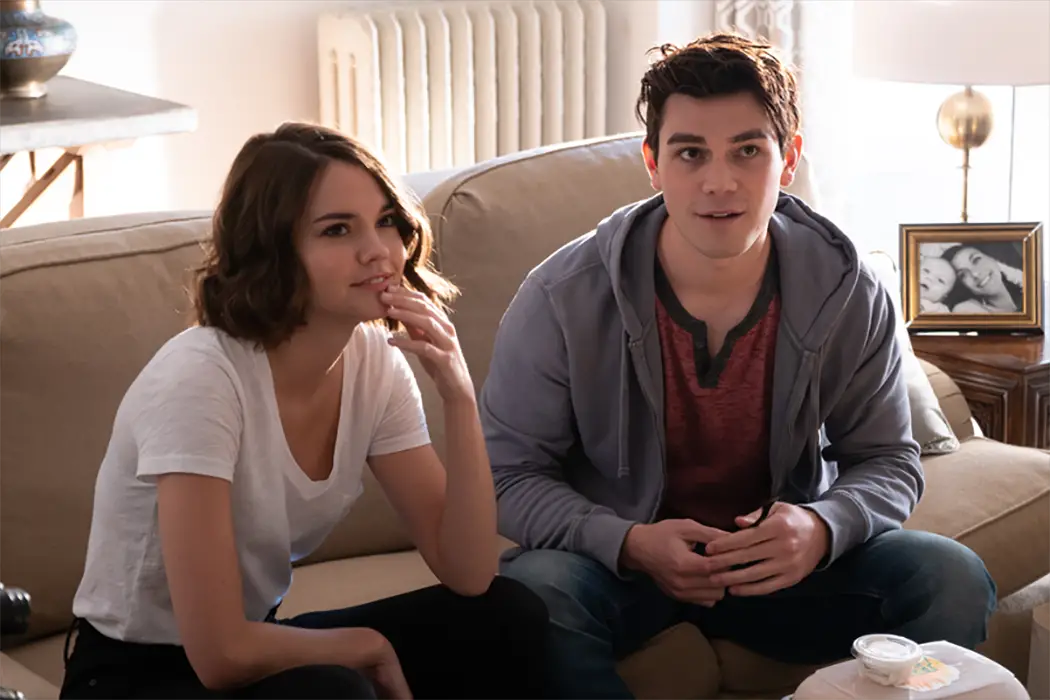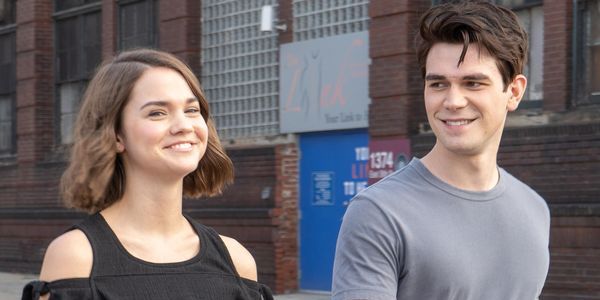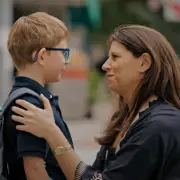THE LAST SUMMER: Young Love With No Heat

Just a plain ol' country boy living in the big…
Within the realms of a romantic comedy, the awkward transition from adolescence into adulthood is an undeniably entertaining time in one’s life to explore, so it comes as no surprise that Netflix have continued to churn-out another teen-fuelled flick after a recent string of successes like To All The Boys I’ve Loved Before (2018) and Sierra Burgess Is A Loser (2018). However, Director William Bindley’s frustratingly empty addition to the sub-genre might struggle to hold the attention of general audiences, let alone the generation it’s intended for.
One Too Many
Set in Chicago, the story follows a handful of students who are close to graduating from their final year of high school, each facing complications in love, family, friendships and decision-making for the big future ahead.
Scattered with the usual stereotypes expected from a film of this sort, we start with our main man, Griffin (played by Riverdale’s ginger ken doll, KJ Apa), who forms an unexpected romance with wannabe documentary filmmaker, Phoebe (Maia Mitchell). There’s also Erin (Halston Sage) and Alec (Jacob Latimore), who break up to avoid the difficulty of a long-distance relationship and start dating others – Paige (Gage Golightly) and Ricky (Tyler Posey).
We then have Erin’s closest friend Audrey (Sosie Bacon), the babysitter of a young actress whose mother is overprotective, Alec’s sleazeball friend Foster (Wolfgang Novogratz), who spends his time cracking wiseacre jokes and crossing off unsuspecting girls from his hook-up list, and finally, the two socially awkward nerds, Reece (Mario Revolori) and Chad (Jacob McCarthy), who lie about their age to avoid being socially excluded.
One would imagine that with this assortment of familiar young faces, there would at least be some campy fun to be had here, or better yet, a few ‘so-bad-it’s-good’ moments to relish in, but no. The story struggles to balance its overload of characters who aren’t given enough screen-time to fully develop, and as a result, not one of these kids feels like a real person, let alone, communicates like one. In addition, there is very little connection between the simultaneously unfolding narratives, which makes the film feel episodic.

If one thing could be said, the chemistry between Apa and Mitchell is the only believable relationship amongst the bloated ensemble; both stars have enough talent and charisma to make it watchable and salvage the dialogue from drowning in mediocrity.
Destination Unknown
Where the above mentioned films succeeded in addressing the real-world anxieties of teens today, this is exactly where The Last Summer fails miserably. Bindley’s perspective of graduating high school and branching out into the real world as a young adult is extremely narrow-minded, and honestly makes one question if he (and his writers) have ever had full conversations with teenagers before writing the script.
These kids are privileged, spoiled even, as if life will just unfold seamlessly for them; the extent of conflict between relationships is constrained to problems like breaking-up due to the inconvenience of long-distance, the threat of an amateur film project failing to be a success, or boys lying about their age to pick up girls. The dramatic stakes are just not high enough.

Furthermore, there’s no attempt to show the daunting stress of leaving high school, which could have been a solid focus for the meandering narrative here. Apart from a half-hearted commentary about the use of modern technology and social media to keep the flames of adolescent puppy love from fading, it only ever toys with exploring these ideas and never follows through. There is nothing, and I mean absolutely nothing here that hasn’t been done before, and done much better.
So what kind of film is Bindley making here? What is he trying to say? It can’t be a comedy, because it’s not funny, and it can’t be a drama, because there is none. So where is he going with all of this?
The Last Summer: Conclusion
Despite an unenthusiastic attempt to show a romance blooming between our two leads and a few minor obstacles they are confronted with, much of the drama occurring in their lives feels trite and unearned. As for the rest of the characters, they are entirely forgettable and feel like they were added into the script to fill time.
It’s a real shame that Bindley didn’t take more risks here, because his film suffers immeasurably from it. There’s just no passion behind his story, no solid message to take away from it. It feels as though he was forced against his will to make a movie about teenagers, because it seems like there is a complete lack of interest about who they are and why we as an audience should care about them. There’s no doubt that the notable cast will attract limited audiences in search of a light-hearted diversion, but anyone craving a substantial story about coming-of-age and young love will be bitterly disappointed in this uninspired, vapid mess.
What makes a teen rom-com work for you? Does it need to reflect your own experience as a teenager? Or is just an equal balance of heart and humour enough? Let us know what you think in the comments below.
The Last Summer was released in the UK and US on May 3rd, 2019. For other release dates, click here.
Does content like this matter to you?
Become a Member and support film journalism. Unlock access to all of Film Inquiry`s great articles. Join a community of like-minded readers who are passionate about cinema - get access to our private members Network, give back to independent filmmakers, and more.
Just a plain ol' country boy living in the big city with even bigger dreams. Film obsessed and 100% dedicated to surrounding myself with all forms of art 24/7. I love to write as a creative outlet, and share my thoughts and ideas about the world of cinema with likeminded individuals.











